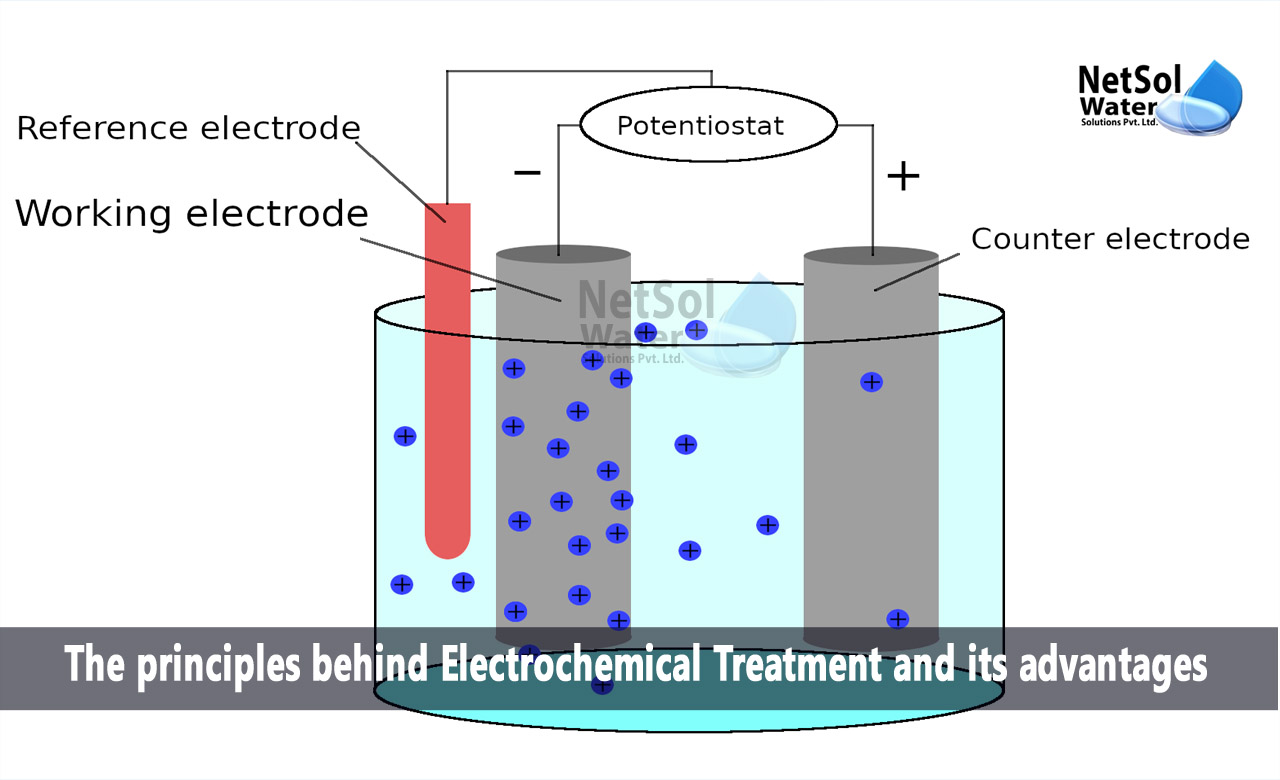What are the principles behind Electrochemical Treatment?
Access to clean and safe water is a fundamental human right. As water scarcity and pollution continue to pose significant challenges, innovative technologies are paving the way for effective water treatment solutions. Among these technologies, Electrochemical Treatment is emerging as a cutting-edge approach for achieving clean water.
In this blog, we will explore the principles behind Electrochemical Treatment, its advantages over traditional methods, and its potential to revolutionize water purification.
Understanding Electrochemical Treatment:
Electrochemical Treatment involves the use of electricity to drive chemical reactions that facilitate the removal of contaminants from water. It utilizes specialized electrodes to generate electrochemical reactions, such as oxidation or reduction, that break down and remove various pollutants. By harnessing the power of electricity, this process offers a unique and efficient approach to water treatment.
Advantages of Electrochemical Treatment:
Electrochemical Treatment offers several advantages that make it a promising solution for clean water:
a. Broad Spectrum Contaminant Removal: Electrochemical Treatment is effective in removing a wide range of contaminants, including organic pollutants, heavy metals, pathogens, and emerging contaminants. Its versatility makes it suitable for treating diverse water sources and addressing different types of water pollution.
b. Selective and Targeted Treatment: Electrochemical processes can be tailored to target specific contaminants. By adjusting parameters such as current density, pH, and electrode material, treatment systems can be optimized to selectively remove particular pollutants, ensuring efficient and focused purification.
c. In-situ Generation of Oxidants: Electrochemical Treatment can generate powerful oxidants, such as chlorine or ozone, on-site. This eliminates the need for the storage and handling of hazardous chemicals, enhancing safety and reducing environmental risks associated with traditional disinfection methods.
d. Energy Efficiency: Compared to conventional treatment methods, Electrochemical Treatment can be energy-efficient, particularly when combined with renewable energy sources. The direct conversion of electrical energy into chemical reactions offers opportunities for sustainable and cost-effective water treatment.
Applications of Electrochemical Treatment:
Electrochemical Treatment has diverse applications in water treatment:
a. Drinking Water Treatment: Electrochemical processes can effectively remove organic contaminants, disinfect water, and control the levels of disinfection by-products, ensuring the production of safe drinking water.
b. Wastewater Treatment: Electrochemical Treatment can be utilized for advanced wastewater treatment, enabling the removal of persistent organic pollutants, nitrogen, phosphorus, and pathogens. It offers a promising alternative to conventional methods, reducing reliance on chemical usage and producing high-quality effluent.
c. Groundwater Remediation: Electrochemical processes can be employed to remediate contaminated groundwater by removing heavy metals, chlorinated compounds, and other pollutants. Its versatility allows for the treatment of specific contaminants found in different groundwater sources.
Future Developments and Challenges:
While Electrochemical Treatment shows great potential, there are challenges to address and ongoing research and development efforts to enhance its efficacy. Key areas of focus include electrode design and materials, optimization of treatment processes, scalability, and economic viability. Continued advancements in these areas will further improve the efficiency and applicability of Electrochemical Treatment.
Conclusion:
Electrochemical Treatment represents a cutting-edge solution for achieving clean water in a sustainable and efficient manner. Its ability to selectively remove contaminants, generate oxidants in-situ, and utilize renewable energy sources makes it an attractive choice for various water treatment applications. As research and development continue to advance, Electrochemical Treatment has the potential to revolutionize the field of water purification, ensuring access to clean and safe water for communities worldwide. By embracing this innovative technology, we take a significant step towards addressing water scarcity, improving public health, and preserving our precious water resources.
Netsol Water is Greater Noida-based leading water & wastewater treatment plant manufacturer. We are industry's most demanding company based on client review and work quality. We are known as best commercial RO plant manufacturers, industrial RO plant manufacturer, sewage treatment plant manufacturer, Water Softener Plant Manufacturers and effluent treatment plant manufacturers. Apart from this 24x7 customer support is our USP. Call on +91-9650608473, or write us at enquiry@netsolwater.com for any support, inquiry or product-purchase related query.



